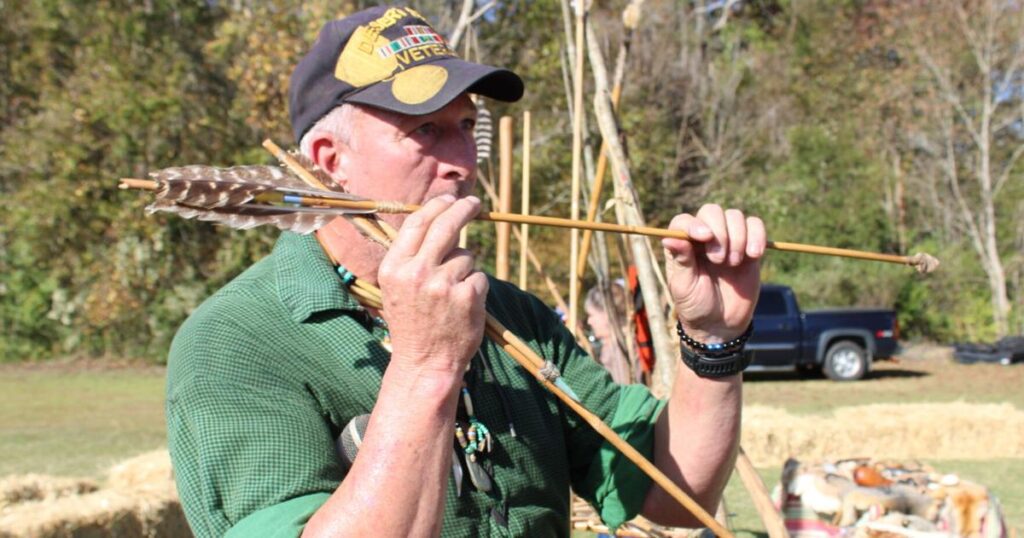Students from the Grand Strand and Pee Dee regions learned about the old ways on Waccamaw Indian School Days at the tribal grounds in the Dog Bluff community near Aynor.
The Waccamaw people demonstrated everything from farming and hunting techniques to tribal dances on Thursday and Friday, Oct. 31 and Nov. 1. The annual outreach and education program is held each year in the days before the annual Waccamaw Pauwau weekend on the 20-acre tribal grounds off Bluewater Road near Aynor.
Waccamaw member Michelle Hatcher said about 450 public and home-school students took part this year, the 19th year that School Days were part of the Pauwau, which was held for the 31st time this year.
“It gives the kids the chance to come and learn,” she said, adding it also gives them a taste of what’s to come if they return for the Pauwau, which attracts thousands of spectators and raises awareness about the Waccamaw people each year on the first weekend in November.
The Waccamaw are one of eight Palmetto State tribes to obtain official recognition from the South Carolina Office of Vital Statistics, but they have not yet been recognized by the federal government.
School Days featured presentations in the Learning Circle, and the Dance Circle.
Ronnie Floyd, whose tribal name is Otter, explained a variety of Waccamaw weapons and tools, while Steven Coffey — Burnt Bear — demonstrated their use.
The demonstrations included everything from rakes, knives, snares and fish traps to bows, arrows, clubs, blow guns and spears, all crafted by tribal members. The spears were launched with the help of a spear-throwing mechanism known as an atlatl, which Floyd said dramatically increases the distance a spear can be thrown.
“We don’t really practice this stuff every day,” Floyd said, when one of Burnt Bear’s arrows missed the target. “If we did, we could do better.”
Floyd explained to the group that the tools, weapons and techniques were similar to those used by other tribes, and by other early inhabitants across the planet.

